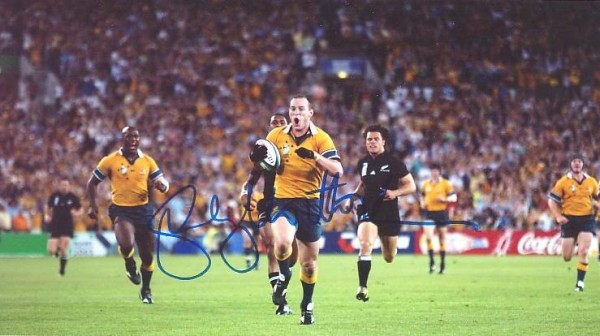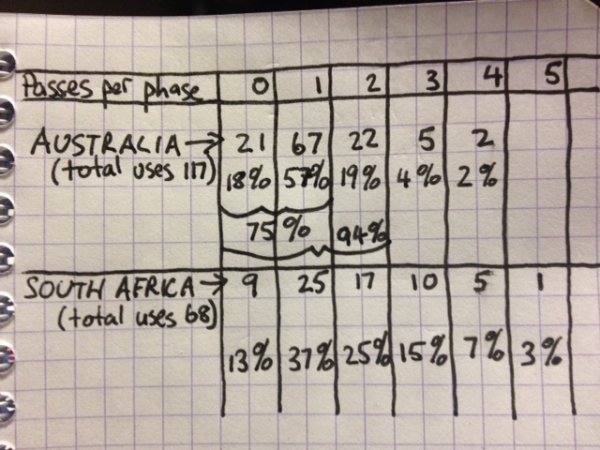When I think of Australian rugby I think running rugby. Teams containing the likes of Gregan, Larkham, Roff, Mortlock, Kefu, Burke and Campese to name a few. The other word that springs to mind when I think of those names is ‘smarts’.

‘Rugby smarts’, to be more exact.
Australia used to be a team that would play smart, having led the opponent into a trap they would deliver the decisive blow. Nothing is as demoralising for a team than to feel like the opposition is toying with you. This was a mental advantage the Wallabies used to have over the All Blacks, and the rest of the world, from roughly 1998 to 2002. It lingered with varying strength all the way up to about 2008.
Having played with the likes of Gregan, Larkham and Mortlock in the early part of my career, I watched as they coolly dissected our opponent’s game, devised targeted strategies to beat them, and then delivered it with a precision in the heat of battle that defied belief. I’m sad to say that this approach, one that yielded every trophy available to an Australian rugby team, appears dead.
As I watched the Wallabies the other night against South Africa, I couldn’t quite put my finger on what was wrong. The commitment was there, some incredible individual displays of skill were there, and we had a lot of ball. It didn’t really look like we were doing that much wrong.
Yet we were beaten comprehensively, 31-8. The Springbok kickers missed 4 penalties and a conversion, not to mention having 3 tries disallowed. It could have been a 50 point drubbing.
So I sat down and watched the replay this week to take a better look. I noticed that we weren’t really stringing any passes together. This happens when a team’s shape is poor and there aren’t actually any passing options available.
So I began counting the number of passes executed each phase for each team. I was astounded by the numbers.

For 75% of the time Australia had the ball we passed the ball once or less. There were 21 pick and goes, and 67 times we hit it up one pass from the ruck. South Africa, a team known more for brutal force than nuance, put us to shame. Only 50% of the time they attacked did they pass it once or less. For 25% of the time they attacked they strung together three passes or more.
The Wallabies did this for 6% of the time, seven times in total. The only try Australia scored came from a phase of play with four passes. South Africa’s three disallowed tries and two of their actual tries came when they strung together three passes.
Basically, all this means is that against the top teams in the world you have to use the ball to score tries. This should be good news because using the ball has always been something innate in Australian rugby players. At the moment, this is either being coached out of them, or the systems in place don’t facilitate this kind of play. The solutions are complex and can be achieved in a number of ways.
The one indisputable fact is, no matter which method you choose, you must use the ball to break down modern-day defences. Only then can you manipulate the opposition to your advantage the way Australian teams have so successfully done in the past. Unfortunately, the Wallabies have become a team so far removed from their spiritual strength.
Australian rugby may just need one more loss this week to begin the journey home.
By the way, Barcelona was awesome. A few pics are below.





